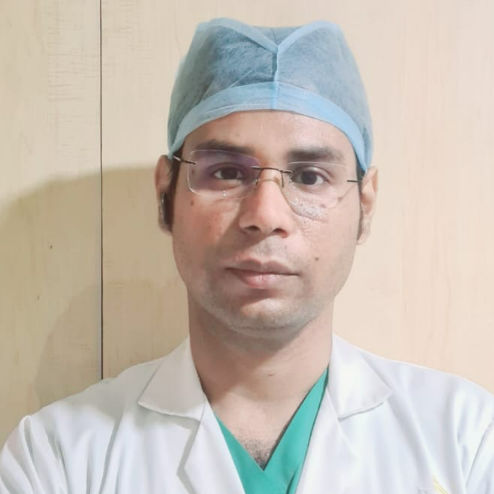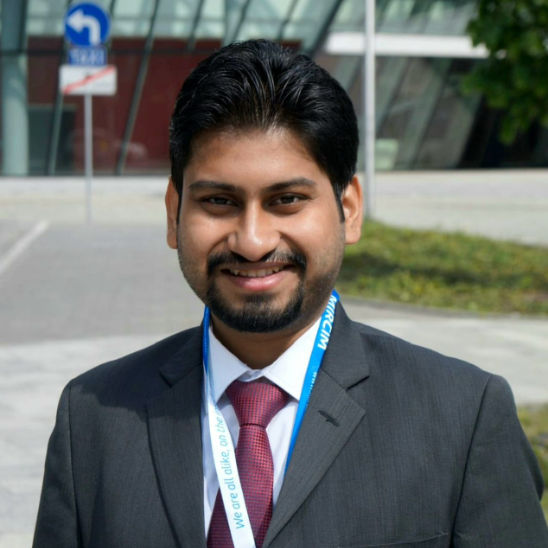Conversion Disorder in Adults
Conversion disorder, also known as Functional Neurological Disorder (FND), is a complex mental health condition characterized by neurological symptoms that medical or neurological conditions cannot explain. These symptoms can include paralysis, tremors, or non-epileptic seizures, and they often arise in response to psychological stress or trauma. Unlike other neurological disorders, conversion disorder does not have a clear organic cause, making it a unique intersection between mental and physical health.

Written by Dr.Sonia Bhatt
Last updated on 13th Jan, 2026

Symptoms and Diagnosis
Conversion disorder, or Functional Neurological Disorder (FND), manifests through a wide range of physical symptoms that mimic neurological conditions but lack an identifiable organic cause. These symptoms are involuntary and often arise during periods of psychological stress. Key examples include:
Motor Symptoms
Paralysis or Weakness: Sudden loss of movement or strength in limbs, often inconsistent with nerve pathways (e.g., a "glove-and-stocking" paralysis that doesn’t align with anatomical nerve distribution).
Tremors or Gait Abnormalities: Shaking, difficulty walking, or a "dragging" leg that fluctuates in severity.
Speech Issues: Slurred speech, sudden muteness, or difficulty articulating words.
Sensory Symptoms
Numbness or Loss of Sensation: Often in patterns that don’t match neurological norms (e.g., entire limb numbness).
Blindness or Tunnel Vision: Unexplained visual disturbances without damage to the eyes or brain.
Seizure-like Episodes
Non-Epileptic Seizures (PNES): Episodes resembling epileptic seizures but without abnormal electrical brain activity (confirmed via EEG).
Fainting or Collapse: Sudtonic episodes without a cardiac or neurological cause.
These symptoms are not consciously produced and can severely disrupt daily life, often leading to frequent medical visits and frustration.
Diagnostic Criteria
Diagnosing conversion disorder requires careful evaluation to rule out other conditions. The DSM-5 outlines specific criteria:
1. Presence of Symptoms
One or more symptoms affecting voluntary motor or sensory function (e.g., paralysis, blindness, seizures).
2. Clinical Incompatibility
Evidence that symptoms are inconsistent with recognized neurological or medical conditions. For example, a tremor that disappears when distracted or paralysis that resolves during sleep.
3. Exclusion of Alternatives
Symptoms cannot be better explained by another medical or mental disorder (e.g., multiple sclerosis or panic disorder).
4. Significant Impairment:
Symptoms cause distress, disability, or warrant medical attention.
The Diagnostic Process
Neurological Exams: MRI, EEG, or blood tests to rule out structural or electrical abnormalities.
Psychological Evaluation: Assessment of stress, trauma, or comorbid mental health conditions (e.g., depression, anxiety).
Collaboration: Neurologists and psychiatrists often work together to confirm the diagnosis, ensuring symptoms align with FND patterns.
Conversion disorder is a legitimate neuropsychiatric condition requiring empathy and precision in diagnosis. By integrating neurological testing and psychological insight, clinicians can provide clarity and pave the way for effective treatment.
Causes and Risk Factors
Psychological Triggers
Conversion disorder, or Functional Neurological Disorder (FND), is deeply intertwined with psychological stressors. While the exact mechanisms remain unclear, research highlights several key triggers:
Stress and Trauma: Acute or chronic stress—such as job loss, relationship conflicts, or financial strain—can overwhelm the brain’s ability to process emotions, leading to physical symptoms. Trauma, particularly childhood abuse, neglects, or post-traumatic stress disorder (PTSD), is a significant risk factor. For example, individuals with unresolved trauma may unconsciously “convert” emotional pain into physical symptoms like paralysis or seizures.
Emotional Conflicts: Repressed emotions, such as guilt, anger, or grief, may manifest as neurological symptoms. This aligns with early psychodynamic theories, though modern science frames it as maladaptive stress responses rather than Freudian “hysteria.”
Mental Health Comorbidities: Conditions like anxiety, depression, or dissociative disorders often coexist with FND, suggesting shared pathways in how the brain manages distress.
Biological and Environmental Factors
While psychological triggers are central, biological and environmental influences create a fertile ground for the disorder:
Biological Influences
Genetic Predisposition: Though not fully understood, studies suggest a familial link. Individuals with a family history of somatic symptom disorders or FND may inherit vulnerabilities in brain regions that regulate emotion and movement.
Brain Function Abnormalities: Neuroimaging reveals differences in areas like the prefrontal cortex (responsible for decision-making) and the limbic system (emotion processing). These regions may “misfire” under stress, disrupting communication between the brain and body.
Environmental Influences
Childhood Adversity: Exposure to chronic illness, parental neglect, or chaotic home environments can shape how the brain responds to stress later in life.
Cultural and Social Context: Societal stigma around mental health or cultural norms that prioritize physical over emotional pain may inadvertently reinforce symptom expression.
Learned Behaviour: Growing up in environments where illness is a primary coping mechanism (e.g., frequent medicalization of stress) can normalize physical symptoms as a response to distress.
Conversion disorder is not caused by a single factor but by a complex interplay of mind, body, and environment. Recognizing this interplay is crucial for reducing stigma and guiding effective, holistic treatment. Ongoing research continues to unravel how these elements converge, offering hope for more targeted therapies in the future.
Treatment Options
Psychotherapy
Psychotherapy is the cornerstone of treatment for conversion disorder (Functional Neurological Disorder, FND), addressing the psychological roots of physical symptoms. Key approaches include:
Cognitive-Behavioral Therapy (CBT): CBT helps patients identify and reframe maladaptive thought patterns and behaviours that exacerbate symptoms. For example, a patient with unexplained paralysis might learn to recognize stress triggers and develop coping strategies to reduce symptom severity. Studies show CBT can improve functional outcomes by enhancing emotional regulation and reducing avoidance behaviours.
Psychodynamic Therapy: This explores unresolved emotional conflicts or trauma that may underlie physical symptoms. By fostering insight into unconscious stressors, patients can process emotions more healthily.
Mindfulness-Based Therapies: Techniques like mindfulness meditation or acceptance and commitment therapy (ACT) teach patients to observe distressing thoughts without judgment, reducing the emotional intensity that fuels physical symptoms.
Medication
While no medication directly treats conversion disorder, pharmaceuticals may manage comorbid conditions:
Antidepressants (SSRIs/SNRIs): Prescribed for coexisting depression or anxiety, these can alleviate mood-related stressors that worsen physical symptoms.
Anti-Anxiety Medications: Short-term use of benzodiazepines may help during acute stress episodes, though long-term reliance is discouraged.
Pain Relievers: For patients with chronic pain linked to FND, non-opioid options like gabapentin may be considered.
Alternative Therapies
A multidisciplinary approach often integrates non-psychological interventions:
Physical Therapy: Tailored exercises help patients regain motor function, rebuild strength, and improve coordination. For example, graded motor imagery can retrain the brain to overcome functional weakness or paralysis.
Occupational Therapy: Focuses on adapting daily activities to accommodate symptoms, such as teaching energy conservation techniques for fatigue management.
Biofeedback and Relaxation Techniques: These teach patients to control physiological responses (e.g., heart rate) through real-time feedback, reducing stress-induced symptoms.
Neurological Rehabilitation Programs: Specialized clinics offer integrated care, combining physical, psychological, and social support to address the biopsychosocial nature of FND.
Effective treatment for conversion disorder requires a personalized, multidisciplinary approach. By combining psychotherapy, symptom-targeted therapies, and collaborative care, patients can achieve meaningful improvements in function and quality of life. Ongoing research continues to refine these strategies, emphasizing the importance of addressing both mind and body in recovery.
Conclusion
While conversion disorder presents significant challenges, ongoing research and advancements in understanding the condition hold promise for improved outcomes. By continuing to explore the complex interplay of psychological, biological, and environmental factors, we can enhance our approaches to treatment and support for those affected by this condition. The future of conversion disorder management lies in a comprehensive, compassionate, and evidence-based approach that recognizes the legitimacy of both the mind and body in health and healing.
Consult Top Neurologist
Consult Top Neurologist

Dr. Aditendraditya Singh Bhati
Neurosurgeon
21 Years • MBBS(2004), DNB Neurosurgery(2014); MNAMS; Fellow Skull Base Endoscopy (Italy), Fellow Extended Skull Base ( Weill Cornell, USA), Fellow ZAP-X Radiosurgery. Member of American Association of Neurological Surgeons
Delhi
Apollo Hospitals Indraprastha, Delhi
(100+ Patients)

Dr. Ganeshgouda Majigoudra
Neurologist
10 Years • MBBS, MD ( GENERAL MEDICINE) DM (NEUROLOGY)
Bengaluru
Apollo Clinic, JP nagar, Bengaluru

Dr. E Prabhakar Sastry
General Physician/ Internal Medicine Specialist
40 Years • MD(Internal Medicine)
Manikonda Jagir
Apollo Clinic, Manikonda, Manikonda Jagir
(175+ Patients)

Dr Debnath Dwaipayan
Neurosurgeon
9 Years • MBBS, MS(Gen. Surgery), DrNB (Neurosurgery)
Delhi
Apollo Hospitals Indraprastha, Delhi

Dr. Uddalak Chakraborty
Neurologist
8 Years • MBBS, MD(GENL.MED.),DM(NEUROLOGY)
Kolkata
MCR SUPER SPECIALITY POLY CLINIC & PATHOLOGY, Kolkata




